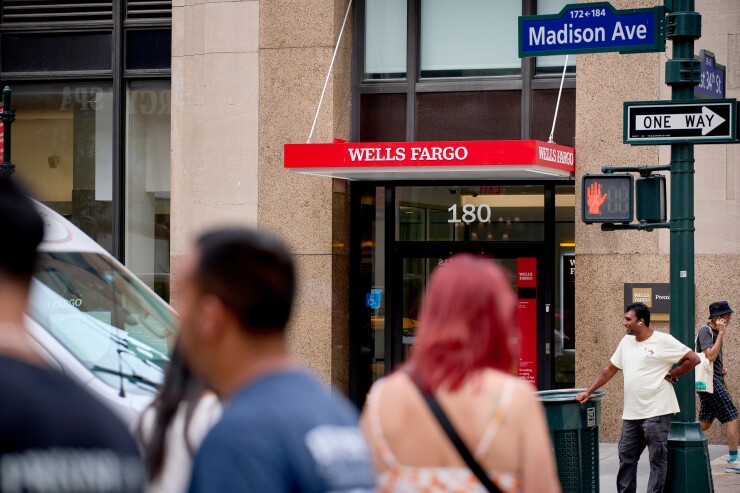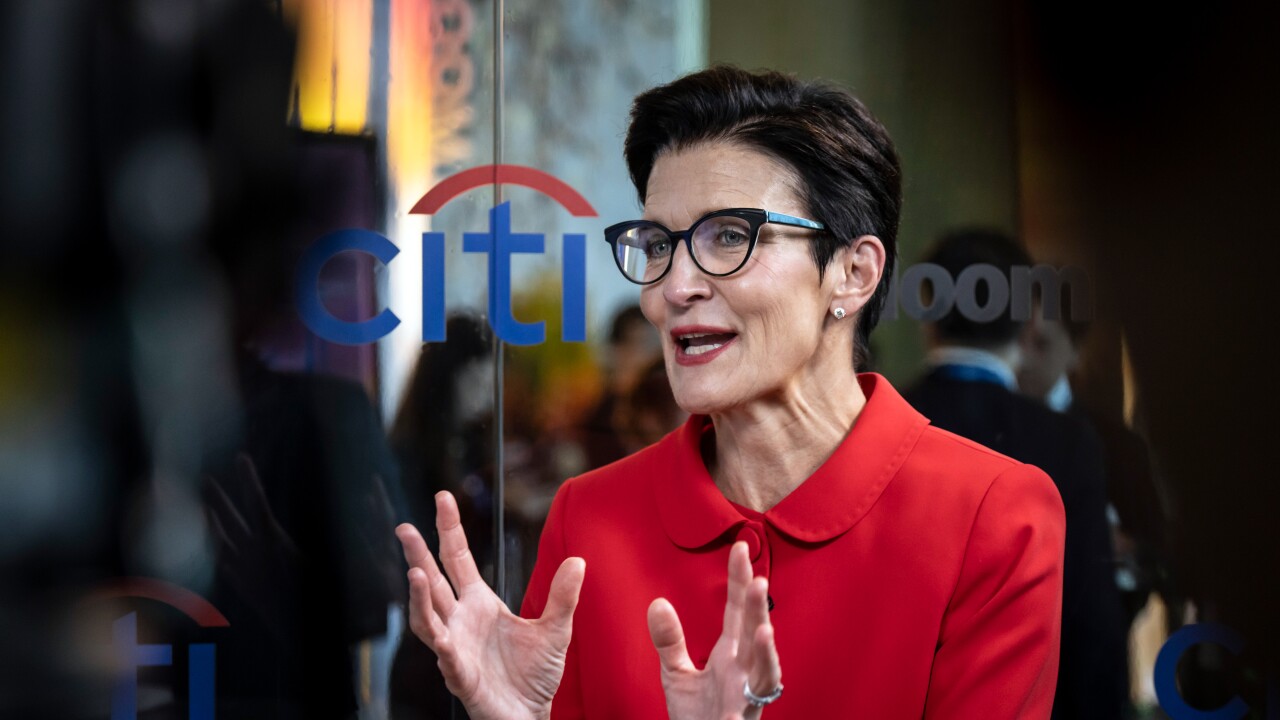
On a Friday morning in July, lawyers representing
Upon hearing the voice, members of
"Everyone's eyes started to bulge, and people got pale for a second," said Belinda Signil, a former Wells employee who was in the room that day as part of the union's negotiating team. "It's almost the look of getting your hand caught in the cookie jar."
Andy King, another former Wells employee who was also in attendance as part of the union team, recalled that one of the bank's lawyers closed his laptop quickly. "And they all kind of looked freaked out," King said.
Union officials say that
That person was Stan Sherrill, a top labor-relations executive at Wells. A bank lawyer told the union representatives who were in the conference room that day that the voice they heard was Sherrill's.
"As we shared with the union at the time, this was a simple mistake — a laptop left connected to an internal meeting regarding the ongoing negotiations,"
Union officials aren't buying
On Friday,
"This surreptitious use of virtual meeting software with recording capabilities amounts to bad-faith bargaining," the union group wrote in a position paper that it submitted to the NLRB.
The $1.9 trillion-asset bank, which has been in talks with the union since November 2024, said: "
While Wells is maintaining a positive public tone regarding the ongoing negotiations over a contract — the bank said last week that it appreciates what it described as constructive dialogue from the union side in July — comments by union representatives suggest that the negotiations have been tense and contentious.
Union organizers seeking to make inroads among U.S. bank workers have largely focused their efforts on
During the bargaining process, union representatives have asked Wells on numerous occasions if people who were unable to fly in for in-person negotiations could listen via Zoom, said Bonnie Winther, a staff representative for the Communications Workers of America.
Winther, who attended last month's bargaining session in New Mexico, said that Wells made an exception to its usual stance on the day when the talks were interrupted by Sherrill's voice — agreeing to allow union staff people whose flights were delayed to participate virtually.
Winther called the Sherrill incident "jaw-dropping" and said she doesn't think it happened by accident.
"I believe it's probably happened before. They just happened to get caught," she said. "I'm not so sure that they haven't been doing this all along."
Sabrina Perez, a Wells employee who attended the July 18 bargaining session as part of the union group, expressed another suspicion: that Sherrill was not the only bank representative on the call.
She said that on several occasions during the nine-month-old bargaining process, moments passed by as
The union participants have wondered whether Wells representatives who are not at the bargaining table are listening and typing suggestions for how to respond in a group chat, according to Perez. "And so we've always had that suspicion of … why does that continue to happen?" she said.
Wells said last week that Sherrill was the only person on the Microsoft Teams call, and that he was only connected for a brief time. The bank also said that its notes indicate that only
In the union's position paper to the NLRB, it cited a recent memo by the NLRB's acting general counsel, who wrote that surreptitious recordings of collective-bargaining sessions constitute violations of the National Labor Relations Act.
"The presence of a recording device may have a tendency to inhibit free and open discussions. This may be especially true when sensitive or confidential matters will be discussed. The spontaneity and flexibility which are commonly manifested during bargaining may be lost," NLRB Acting General Counsel William Cowen wrote in the June 25, 2025, internal memo.
Union officials acknowledged last week that they didn't know whether





